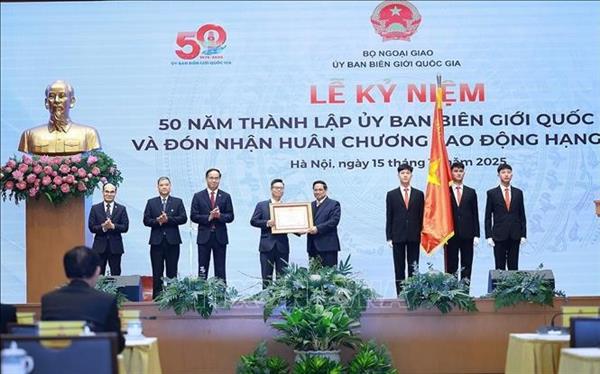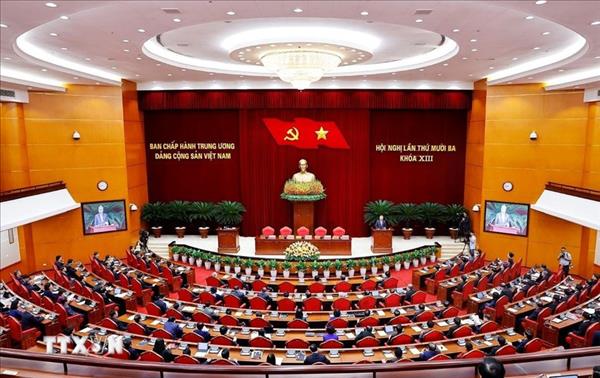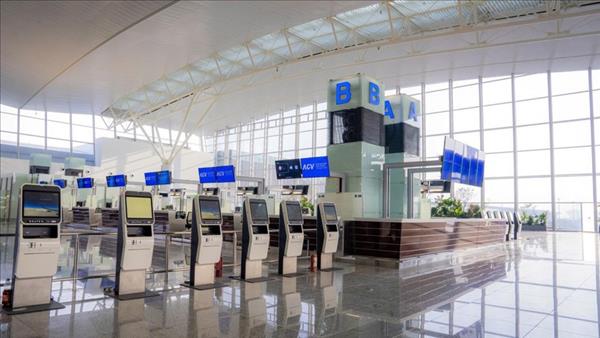CPTPP is the new name of the Trans-Pacific Partnership Agreement (TPP), made up of 11 signatories following the US’ withdrawal. The current member states are Australia, Brunei, Canada, Chile, Japan, Malaysia, Mexico, New Zealand, Peru, Singapore, and Vietnam, who signed the deal in March 2018.
The Vietnamese National Assembly passed a resolution ratifying the CPTPP and related documents on the afternoon of November 12. Mexico, Japan, Singapore, New Zealand, Canada and Australia had already ratified the agreement.
It is considered a high-quality free trade agreement and one of the most comprehensive trade deals ever concluded. CPTPP member states form a giant market with 500 million consumers, accounting for 15 percent of the world’s gross domestic product (GDP) and 15 percent of the global trade turnover.
The pact not only mentions traditional issues regarding tariff cuts, the services market, intellectual property, and technical barriers related to trade; but also addresses new and non-traditional issues related to labour, the environment, and the purchase of state-owned enterprises.
In addition, member states signed several bilateral agreements and commitments in the form of letters and memoranda of understanding.
For Vietnam, being one of the first countries to join the agreement demonstrates the Party and State’s policy of taking the initiative in international integration, affirming the country’s important geo-political position and role in both Southeast Asia and in the Asia-Pacific region, as well as raising its position in the Association of Southeast Asian Nations (ASEAN), the region and the world.
The country’s ratification of the agreement is a step towards realising its policy of multilateralisation and diversification of international relations. The agreement is expected to open up more chances and favourable conditions, helping boost Vietnam’s exports to countries in Asia, America and Oceania, including such major markets as Japan, Australia and Canada.
Vu Tien Loc, Chairman of the Vietnam Chamber of Commerce and Industry, stated that the CPTPP will offer Vietnam a chance to expand its trade ties with new potential markets in America, and expand and deepen relationships with current markets, including many strategic partners.
This is also an opportunity to raise profits for enterprises, generate more jobs for labourers, improve people’s living conditions, boost economic development, and multilateralise international economic relations, thus helping ensure sustainable and autonomous development, Loc said. He added that the opportunity is more valuable in the context of the world’s unstable economic situation with its escalating trade wars and conflicts.
According to a survey carried out by the Ministry of Planning and Investment, the CPTPP can help the country’s GDP, export and import increase by 1.32 percent, 4.04 percent and 3.8 percent by 2035, respectively.
Engaging in free trade agreements with member states will help Vietnam restructure its import-export markets in a more balanced manner, thus contributing to increasing the country’s independence and autonomy.
It will also offer a chance for the country to participate in a supply chain formed after the agreement becomes effective so it can take part in production stages with higher added value, said the survey.
Last year, Vietnam’s total trade turnover with CPTPP member states surpassed 67 billion USD, accounting for 15.84 percent of its total import-export value. Vietnam enjoys trade surpluses with almost all signatories.
At present, Vietnam is paying close attention to stepping up production for export with a number of tax incentives and openness in technical barriers.
The agreement will bring about big opportunities for import-export enterprises in Vietnam, including both domestic and foreign invested ones. Its investment and services-related commitments are expected to help improve the nation’s investment environment and facilitate it in attracting more FDI, especially in fields it holds a particular demand.
Currently, all member nations except Peru have invested in Vietnam. Altogether, they have so far poured around 123 billion USD into the country, accounting for nearly 37 percent of the total FDI registered for Vietnam over the past 30 years.
VNA/VNP

















